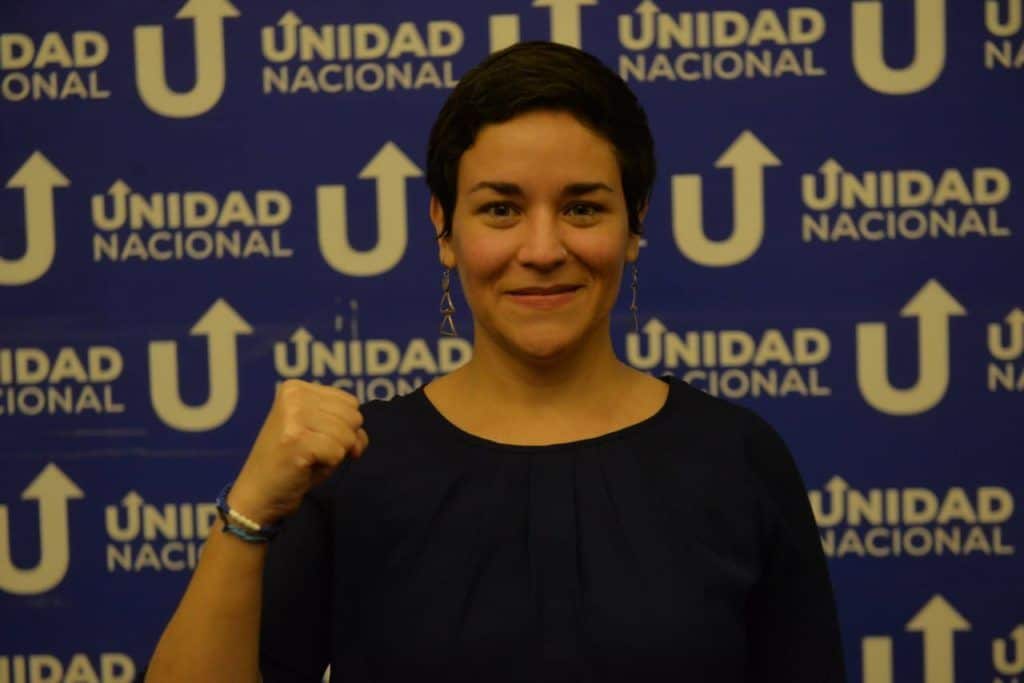4 de marzo 2024

European Concern over Lack of Academic Freedom in Nicaragua

PUBLICIDAD 1M
PUBLICIDAD 4D
PUBLICIDAD 5D
Victims of the dictatorship, activists, and state workers affirm that independent media have helped to expose the Ortega-Murillo regime

Día Nacional del Periodista en Nicaragua. // Fotoarte: CONFIDENCIAL
On the night of June 22, 2018, the lives of Cornelio Rivera and his family changed forever. His son, Wendell Rivera Narváez, 17 years old, was shot by police in the Santa Elena neighborhood of Managua, near the National Agrarian University (UNA), as he was returning from playing soccer. He passed away a day later. “Since then, we haven’t stopped denouncing that crime, and independent journalists have always been on our side supporting us,” emphasizes the father.
For this 50-year-old man, speaking out resulted in his other son being detained by the Police three times and intercepted in his neighborhood on more than six occasions for questioning. The last time was on January 26, 2024. “They detained him for 48 hours, and when they released him, they warned him that next time they would lock him up for longer,” emphasizes Cornelio. That’s why both decided to leave Nicaragua and arrived in Costa Rica a few days ago to request asylum.
Denouncing, through the independent media, also provoked the lack of medical attention for his wife, Josefa Narváez, who died of cancer on February 23, 2022.
However, Cornelio, a member of the April Mothers Association, says that thanks to independent journalistic coverage, “our defense and accusation against the regime began.”
The dictatorship of Daniel Ortega and Rosario Murillo has tried, through its propaganda media, to impose the narrative of a supposed coup attempt to justify the murders of more than 350 Nicaraguans during the social protests of 2018.
“Journalists have helped us to make it known that the dictatorship has committed all these crimes against innocent people. That’s why I say they helped us defend ourselves. My wife and I never hesitated to continue denouncing, even knowing that it could bring consequences,” reiterates Rivera.
He comments that what his family experienced is something that many other families have suffered. “So much repression, murders, imprisonments, and human rights violations cannot be hidden, and that is why the reporting is fundamental for all these crimes to be known.”
“Often we felt that in our neighborhood, no one could do anything when they came to harass and intimidate us, but journalists were the only ones who helped us not to remain silent and let the world know what we were suffering,” said Rivera.
“If you don’t speak up and denounce, you’re letting them do whatever they want. Keeping silent won’t guarantee that they won’t do it, so it’s best not to remain silent,” he reflects.
Gladys' son was killed during one of the main attacks against the 2018 protests, which we do not specify to protect the safety of the Nicaraguan, a member of the April Mothers Association (AMA). “It was thanks to the journalists, who were on the scene, that I knew how they killed my son. They accompanied me to the burial, despite the siege. I feel that they have been with me in this denunciation and in this search for justice,” she says, using an assumed name.
"Gladys" values the work of Nicaraguan journalists because “they took risks to show what has been happening in Nicaragua since April 18, 2018,” and because “they have not remained silent despite the threats and all attempts to silence them.”
“If it weren’t for journalists, we wouldn’t be aware of many things that happened and are still happening. They are a fundamental part of proving that the Government committed crimes against humanity,” maintains this April Mother, who is exiled in the United States, but whose family in Nicaragua continues to receive threats.
"Gladys" maintains that the work of independent journalists has been “vital to preserve the memory of the murdered.” “Everything they have reported and continue to denounce will be important so that in the future, future generations do not experience the same as us,” she ensures.
Although she claims to feel safe in the United States, it hurts her to have her children in different countries. “I will never regret having denounced because what the April Mothers care about is finding truth and justice,” insists "Gladys".
During the 606 days that political activist Tamara Dávila remained locked up in the infamous El Chipote prison, she always had the conviction that the best thing she could have done was not to remain silent in the face of all the abuses of the dictatorship in Nicaragua.
“I will always be eternally grateful to the journalists who have supported us with the denunciation. Having a voice has a high cost for journalists and for us, but it is always better to use your voice than to remain silent,” she said.
Davila was exiled to the United States along with 221 other prisoners of conscience in February 2023. The political activist believes that the dictatorship “is susceptible to pressure and denunciation.” That is why she believes that in some way she managed to reunite with her daughter.

She says thanks to independent press, Nicaraguan citizens “manage to have a critical analysis of reality.” “Although the dictatorship wants them to stop informing, they continue to resist despite adverse conditions, and it is hopeful because they are an example of overcoming fears and repression,” she emphasizes.
Davila questions that the dictatorship “has believed that by controlling national chain media, it will control public opinion, but they do not realize that the globalized world is highly interconnected and that journalism overcomes all barriers. Besides, she believes people are capable of discerning, that day-to-day life does not correspond to what they want to sell.”
“Dayana,” a worker in a departmental office of the Sandinista National Liberation Front (FSLN), who has spoken with CONFIDENCIAL, recalls that she overcame the fear of denouncing violations because “I needed to vent and let them know how they treat us public workers.”
“There are many dissatisfied pubic workers, who before we could express ourselves a little among ourselves. Today no one says anything because the guillotine has fallen on many,” she comments.
However, she admits that, for her, independent journalists “are the only way the population has to know what the regime is like from within and the decisions they make.”
“Although they have muzzled us, we have been able to denounce with different journalists and independent media all the discontent and abuses they commit, such as stealing our severance pay,” she explains.
Human rights defender Ivania Alvarez, who works with various social organizations that have citizen networks throughout the national territory, assures that it is thanks to journalists that complaints are amplified.
“Citizens feel that only through public denunciation can they make a change,” she points out. Therefore, she values that small changes have been achieved because “the regime is attentive to independent media.”
Although she recognizes that denouncing and speaking up is currently dangerous for citizens, “people have not stopped doing it,” even state workers and Sandinista fanatics.
“2023 was one of the quietest years for the people of Nicaragua, but people always find a way to denounce. Although they know that afterward the regime’s envoys will come to ask who said something, who sent a photo or a video,” Ivania relates.
She believes that the great challenge facing journalists is reaching audiences with limited internet access and that despite exile, they remain close to the needs of the people.
Christopher Mendoza, a member of the executive committee of the Independent Journalists and Communicators of Nicaragua organization, says that he grew up understanding that a fairer society can only be built with the participation of citizens and that information is necessary for that.
“I can’t imagine a society that is not aware of what happens at the levels of power because if not, they would do as they please (…) and even though the dictatorship does whatever it wants, we are here to denounce its abuses,” he maintains.
Mendoza values that Nicaraguan journalists, the vast majority from exile, are making an effort “not to decline, despite attempts to silence all critical voices.”
“The questioning by independent media represents the interests of citizens, and that allows them to continue seeking us out to denounce,” he reflects.
However, he notes that international financing and the citizen sources have declined,” and that is why he understands when many stop practicing the profession.
“With each journalist who stops reporting, citizens lose an opportunity to continue informing themselves,” he insists.
This article was published in Spanish in Confidencial and translated by Havana Times. To get the most relevant news from our English coverage delivered straight to your inbox, subscribe to The Dispatch.
PUBLICIDAD 3M
Confidencial es un diario digital nicaragüense, de formato multimedia, fundado por Carlos F. Chamorro en junio de 1996. Inició como un semanario impreso y hoy es un medio de referencia regional con información, análisis, entrevistas, perfiles, reportajes e investigaciones sobre Nicaragua, informando desde el exilio por la persecución política de la dictadura de Daniel Ortega y Rosario Murillo.
PUBLICIDAD 3D